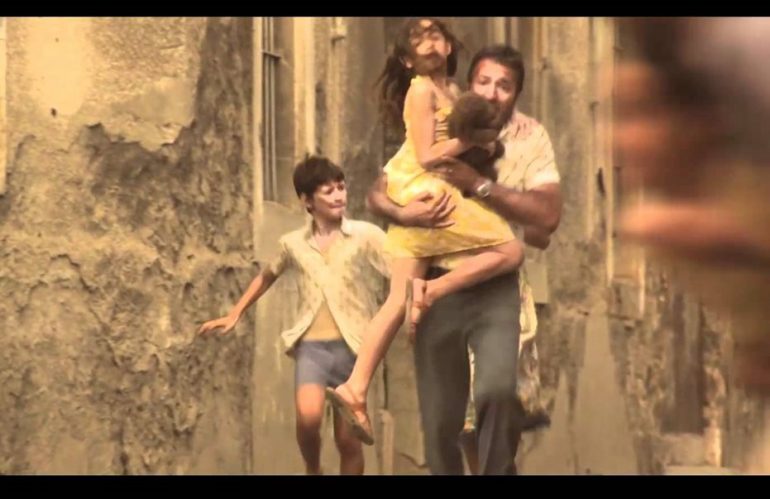"People let us borrow the clothes they wore in '74, they still had them in a trunk…"
This is the short film "The Palace", directed by Anthony Maras, which moved thousands of people. The film was released in 2011 and to date has garnered numerous awards and accolades around the world. "The Palace", is inspired by the Turkish invasion of Cyprus in 1974 and moved thousands of people who even today, 7 years later, are talking.
The Australian director Antonis Maras, brought to the big screen a story that has been inspired by real events and the film was shot in real locations in Nicosia. The director wanted complete authenticity in costumes and production, but also in the details of the events. Everything was done with the help of an international team from all over the globe (Australia, Greece, Cyprus, Germany, Morocco, England and South Africa).
The story of the film…
A Cypriot family finds refuge in an abandoned former Ottoman palace. When a young Turkish Cypriot recruit comes face to face with the fleeing family, he is forced to face his role in the harsh reality of war.
A few years before filming begins…
Maras was interviewing Cypriot refugees as part of his extensive investigation into the film. During an interview, he heard a story that shocked him. "I was told about a young Cypriot mother who was faced with an unthinkable dilemma," Maras recalled in a blog post for the Huffington Post in 2011. "As Turkish troops surrounded her house, her baby kept crying. And she had to decide between letting it cry and suffer the consequences or trying to silence it so that they would not be discovered, closing her mouth with her hand and thus risking killing it. "Since then I have not been able to get this story out of my mind."
This creepy script became the first major part of the film's history. "The film is anti-war and pro-justice. "It talks about the civilians and soldiers who came face to face and how their lives were connected." "We were more interested in the history of the people and not so much in the political side of the situation. We focused on what war means to ordinary people. The citizens. What does war mean to a mother and her child? What does war mean to a young soldier who does not want to be there? "Our film was about how people work in the most unnatural situations, that is, in death and destruction."
The film faced several obstacles until it was completed…
The biggest was that of the budget. "The money we had secured from the Greek government and from individuals disappeared with the Greek financial crisis," says Maras. Raising some financial support from the Adelaide Film Festival Investment Fund and the South Australian Film Corporation, Maras and his associates were not discouraged. "We had to use every dollar in the right way. "When we showed the film to people who had had that experience, they told us over and over again that we had created something that looked and felt and felt like 1974." Many helped, "People let us borrow the clothes they wore in '74, they still had them in a trunk. "The same happened with the Turkish military uniforms," says Maras. Even the weapons used in the film were some of the real weapons used in the invasion. "The coal depot in which the family is hiding in the film," adds Maras, "is a real coal depot that remained intact in a cheap hotel next to the Green Line. The gunpowder barrels and the weapons in there have not moved an inch since 1974. "
Source: ant1iwo.com
